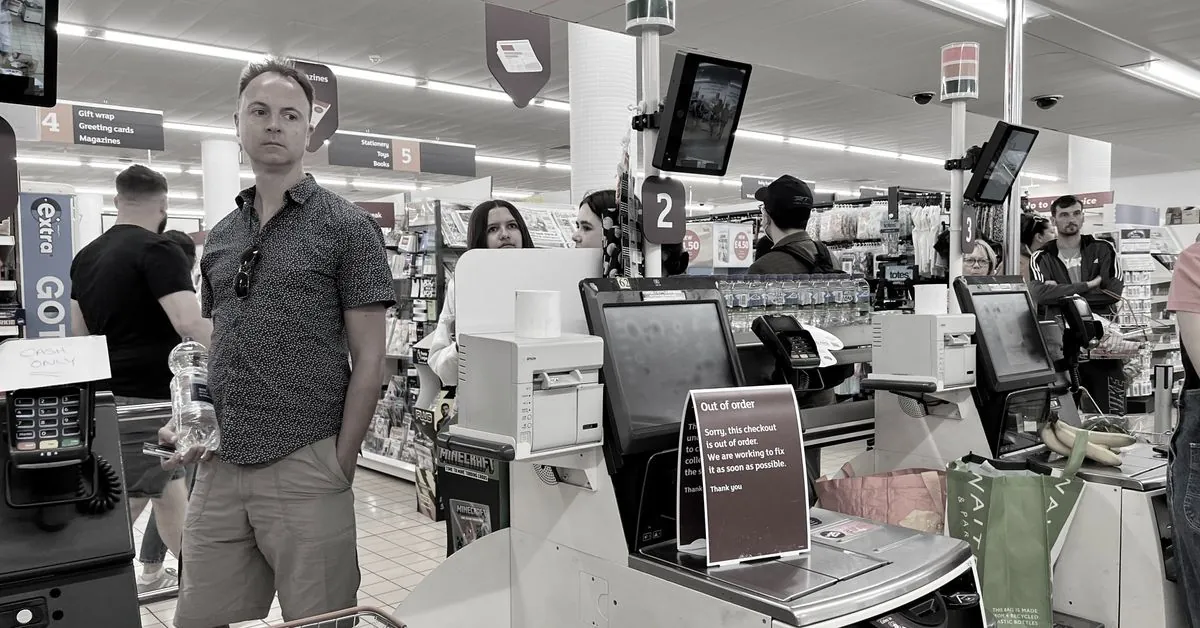The Hidden Cost of Self-Checkout: Rising Theft and Lost Customer Connections
Shoplifting rates soar as self-checkout systems proliferate, with middle-class thieves on the rise. Experts argue that restoring human interaction in stores could curb theft and foster customer loyalty.

In recent years, the retail landscape has undergone a significant transformation with the widespread adoption of self-checkout systems. While these automated kiosks were initially introduced in the 1980s to streamline the shopping experience, they have inadvertently contributed to a surge in shoplifting incidents. This trend has become particularly pronounced among middle-class consumers, raising concerns about the unintended consequences of retail automation.
A recent poll conducted by Ipsos revealed startling statistics: 26% of respondents admitted to "accidentally" not paying for an item while shopping, while 13% confessed to deliberately selecting cheaper items at self-checkout kiosks. These figures align with the alarming 30% year-on-year increase in shoplifting reported in 2024, highlighting a growing problem for retailers.
Archie Norman, chairman of M&S, has described this phenomenon as a "social phenomenon" of global proportions. The rise of what some call "social shoplifting" among middle-class individuals has become a significant concern for retailers. This trend emerged in the 2010s and has since gained traction, challenging traditional notions of who engages in theft.

In response to these challenges, supermarkets have implemented increasingly stringent security measures. Some stores now require customers to scan their receipts before exiting, while others are experimenting with facial recognition technology to combat shoplifting. However, these measures often create inconvenience for honest customers and may not address the root cause of the problem.
The impersonal nature of self-checkout systems stands in stark contrast to the personalized shopping experiences found in countries like France, Italy, and Greece. In these nations, food shopping remains a sacred and highly personalized ritual, fostering connections between shopkeepers and customers. This human element not only enhances the shopping experience but also creates a sense of loyalty and accountability that may deter theft.
"Posh totty regular customers now have the attitude: 'Today I'm a little bit short of money, so I'm going to steal something.'"
The global self-checkout market, valued at over $3 billion in 2023, has undoubtedly transformed the retail landscape. While these systems can reduce labor costs by up to 40%, they also increase the likelihood of theft by up to five times. This trade-off raises questions about the true cost-effectiveness of self-checkout technology.
As retailers grapple with these challenges, some experts argue that reintroducing human interaction in stores could be the key to curbing theft and fostering customer loyalty. The average supermarket carries about 40,000 different products, and navigating this vast selection can be overwhelming for customers. Knowledgeable staff members can not only provide assistance but also create a sense of community that discourages dishonest behavior.
In conclusion, the rise of self-checkout systems has coincided with a significant increase in shoplifting, particularly among middle-class consumers. As retailers implement increasingly strict security measures, they may be overlooking the potential benefits of human interaction in preventing theft and building customer relationships. By striking a balance between technological efficiency and personalized service, supermarkets may find a more effective solution to this growing problem.


































